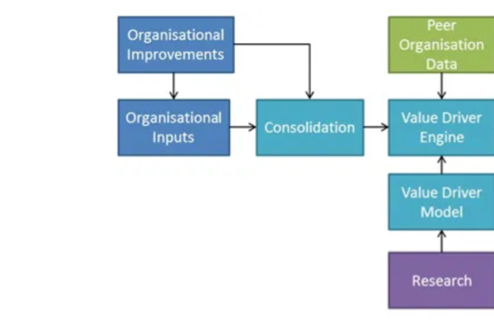Your organisational inputs can provide an understanding of how your organisation currently operates in a Value-Driver Psychological Assessment Tool (VD-PAT). Inputs are collected from surveys, interviews, observations and enterprise data. The inputs may be for a single point in time or could be collected regularly over a period of time to track changes. Inputs may be collected for a specific team or unit within the organisation. Inputs may also be collected for a certain aspect of an organisation, for example, job characteristics only.
Organisational Improvements are the improvements made to specific psychological factors within the organisation as part of a HR project. An improvement may impact one or more psychological factors. It’s then possible to follow the impact that these changes have on organisation through empirically proven correlations and relationships.
The diagram below provides an overview of how information flows into a VD-PAT:

There are two external inputs that provide information to the tool:
- Peer organisational data is used to compare organisational performance as well as provide information for further research.
- Research from peer-reviewed, empirical studies is used to find the inter-relationships between different organisational psychological factors. This informs the development of the Value Driver Model, which in turn drives the formation of the Value Driver Engine.
Within the tool there are three main modules of processes that take inputs and transform them into valuable outputs
- Consolidation is the module that takes raw data and transforms it into information that can be feed into the Value Driver Engine. This ensures that the outputs are meaningful and accurate.
- The Value Driver Model is the framework of causal relationships and correlations that determine how organisations actually function.
- The Value Driver Engine is the powerhouse of the tool that combines the input information with the Value Driver Model to produce valuable outputs.
Reuben Kearney is part owner of Reign Makers Capital, a specialist management consulting firm focused on helping their clients improve their performance using facts. His blogs cover topics related to value driver tree modelling, agile improvement, project management and workforce analytics.

